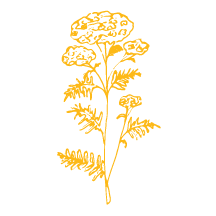
Author’s Note: as I write this, an election fraught with uncertainty unlike any other is two days away. This week, Maine for the first time had more than 100 new COVID-19 cases on a single day. We are increasingly being told to limit indoor gatherings this winter, a need threatening family gatherings for the holidays, certainly increasing ongoing isolation for those already tired of being alone. The mental strains from the pandemic and our politically divided country weigh on many. It is in this context I offer Brendon’s tale—a story about overcoming obstacles not only through individual grit and persistence, but using the necessary supportive role of community. Brendon’s tale reminds us we can make it through anything, and we must do it together. (PB, 11/1/20)
As with so many who become caught up in the criminal justice system, Brendon McLellan’s problems began with substance use.
“I just loved it,” he says, recalling his marijuana and alcohol use as a teenager. “I had a great childhood, a great family, and lots of opportunity. But I just loved getting high.”
It eventually led to trouble. Expelled from a private school in 10th grade, by senior year Brendon was arrested for Operating Under the Influence. By then, he had added “oxy” (Oxycodone) and cocaine to his habitual weekends of using. Though his driver’s license was suspended, he did not see jail time—that did not come until his mid-20s (he is now 34).
As his addiction grew, Brendon needed more money than he could legally earn. He took to stealing and pawning jewelry from his girlfriend’s family.
“I loved her and I loved her family. I felt terrible about what I was doing, but that addiction drove me right by what’s right and wrong. It was always my loved ones I stole from and hurt the most.”
Such is the way with substance use disorder: the brain’s circuitry is hijacked, and uncontrollable urges relentlessly drive behaviors privileging drug use above all else. Willpower is useless; moral compasses broken.
Brendon’s unwell path eventually led to a 3-year prison sentence, and while incarcerated, he began turning his life around.
“My second day up at Maine State Prison, I ended up seeing a childhood friend from the Boothbay area who was serving time for two murders,” he recalls. “He had changed his life and had been sober five years. That influenced me. I began doing yoga, meditation, working out—that routine was so critical for keeping a healthy attitude. I became part of a community of sobriety up there.”
When coronavirus shut Maine down in March, Brendon had just two months left to serve on his sentence—some say the most important two months for successful transition out of the system.
“COVID hit, and at first it was better than usual. With transport shut down, we had extra guards around and everything ran as scheduled with no cancellations. The first month was great.”
That changed.
“Then we went into a state of emergency and they shut down everything. No visits. No recreation. No programs. We were shut down in our pods.”
Beyond no longer receiving visits from his family and losing out on his daily structured routine, Brendon had the added anxiety of not being able to prepare for release as he had planned to.
“It’s so important for re-entry to make connections with people on the outside, and I couldn’t make those connections,” he says. “Here it is the end of March, and I’m getting out in May. It’s a really crucial time for me to get ready to go out into the world.”
Brendon knew the facts: 70% of individuals released from incarceration commit crimes again, and those suffering from substance use disorder have a significant chance of relapse upon release, leaving them at high risk for death from overdose. He was right to be concerned. Adding to his challenges, Maine was still on pandemic lockdown when he was released in May.
“I went from one quarantine to another,” he says. “To be honest, I was just scared.”
Odds against him, Brendon knew the first thing he needed to do was recreate the programs he’d had access to before COVID-19 shut down the prison system.
“I really needed to find a sober community,” he says. “That’s key to my sobriety.”
Friends in prison had given him a phone number when he left: that of Keith Arvanitis. Keith, a certified peer support specialist and recovery coach, is the Program Coordinator of Boothbay Harbor Peer & Wellness Center.
“The day I got out I got my cell phone, and that day I sent him a text,” says Brendon. “He replied and told me about the support meetings at [Barrett’s Park in] Boothbay.”
Brendon attributes his ongoing sobriety to the meetings he now attends, and the supportive community he has found even in the midst of a pandemic. Life is coming together, and his peers have made all the difference. When he feels cravings or urges, he reaches out.
“Either Keith is texting me, or I’m texting him. Keith lived that lifestyle. He’s been in prison, gotten sober in prison, and wants to help. There’s a comfort level in speaking with someone else who has addiction. I need that to be completely open with somebody.”
As hard as it’s all been, Brendon has managed not just to survive, but to thrive. Some of his success comes from his daily hard work and well-earned resilience, and some from all of those around him holding him up.
“I feel confident now. I’m so fortunate to have my recovery community, and my family still supports me after all these years. I put them through the worst. I even got a puppy last week. I couldn’t take care of myself before, how could I have taken care of a puppy? I’d have had trouble with a goldfish. I don’t want to say I’ve got it, but I’m on the right path.”
He certainly is.
Brendon’s story shows us all that is possible, even as the world seems increasingly impossible.




